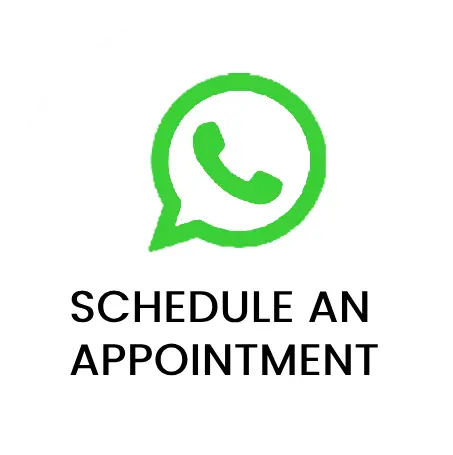Blurry Vision After SMILE Surgery: What You Need to Know

AUTHOR
Ophthalmologist/ Eye Surgeon 13+ Years Exp
MBBS, MS – Ophthalmology
TREATMENT
CALL US 24/7 FOR ANY HELP
GET IN TOUCH ON
You’ve had SMILE surgery, and now you’re super excited to ditch your glasses or contact lenses, but hold on… why is your vision still blurry? If this sounds familiar, don’t panic! Experiencing blurry vision after SMILE surgery is completely normal and an essential part of the healing process.
Still, it can be unnerving when things don’t feel perfect right away. I get it. That’s why I’ve created this detailed blog with everything you need to know about blurry vision after SMILE surgery.
How long does it last? Is there cause for concern? What can you do to help your eyes heal faster? By the time you finish reading, you’ll feel reassured and ready to tackle your recovery with confidence.
I’ve also included some insights from experienced doctors and real patient experiences to make this comprehensive yet easy to understand. So, grab a cup of tea, relax, and read on!
Why Is Vision Blurry After SMILE Surgery?
After SMILE surgery, blurry vision is not only common but also expected. SMILE (Small Incision Lenticule Extraction) reshapes your cornea to correct refractive errors such as nearsightedness or astigmatism. This minimally invasive procedure involves a small incision, but your eyes still need time to heal and adapt to their new shape.
What Causes Blurriness?
Blurry vision occurs for several reasons:
- Initial Swelling of the Cornea: The laser used during SMILE creates a subtle change in your cornea’s structure. Swelling is normal as the tissues heal.
- Dry Eyes: Surgery temporarily affects your eyes’ ability to produce tears, leading to dryness and blurry vision.
- Healing Process: The brain and eyes need time to adjust to the new correction, particularly if your prescription was high.
Doctor’s Insight: “One of my patients reached out three days after surgery, worried because she still couldn’t see clearly. I explained that blurry vision is just part of normal recovery and encouraged her to stay patient. Sure enough, by day seven, she was amazed at her results.”
How Long Does the Blurriness Last?
The duration of blurry vision varies depending on individual healing and the severity of your original prescription. Here’s a general timeline:
First 24–48 Hours
Blurry vision is most noticeable immediately after the procedure. While some people see improvement within hours, it’s common for vision to remain hazy initially. During this time, your eyes are adjusting, and rest is crucial.
Day 2-7
Most patients report gradual improvement in vision during the first week. By the end of this period, you’ll likely notice much less blurriness, although night vision (like seeing halos around lights) might still be tricky.
Week 2 and Beyond
At this stage, any residual blurriness should steadily ease. Vision typically becomes sharper over the next few weeks, reaching its peak clarity at around 1–3 months post-surgery.
Important: If your vision doesn’t improve within this timeline, consult your eye surgeon for a check-up. While rare, slight adjustments may sometimes be necessary.
Real Patient Example: “A marathon runner I treated shared that she was frustrated by the blurriness during her first week. But she trusted the process, and by week two, she was thrilled to clock new personal bests without fumbling with contacts!”
When Is Blurry Vision After SMILE Surgery Normal?
Here are some scenarios where blurry vision is perfectly normal and not cause for concern:
- Waking Up in the Morning: Your eyes are drier when you wake up, which can temporarily affect clarity.
- After Staring at Screens: Long screen sessions can strain your healing eyes, making them feel hazier.
- At Night: Nighttime halos or glare around lights are common during early recovery.
When to Contact Your Doctor
While blurry vision is typically harmless, don’t ignore it if you experience these issues:
- Sudden, significant worsening of vision.
- Severe pain or discomfort.
- Persistent blurriness that doesn’t improve after a month.
- Signs of infection, such as redness or excessive tearing.
Doctor’s Note: “Your eyes are precious, and it’s always better to err on the side of caution. A quick follow-up appointment can offer peace of mind if something feels off.”
Tips to Manage Blurry Vision After SMILE Surgery
While blurry vision improves naturally as your eyes heal, there are certain things you can do to support the process:
1. Use Your Prescribed Eye Drops
Your surgeon will likely recommend lubricating drops to combat dryness and anti-inflammatory drops to reduce swelling. Use these religiously as directed.
2. Avoid Eye Strain
- Limit screen time, especially during the first week.
- Follow the 20-20-20 rule for screen use (look away every 20 minutes for 20 seconds at an object 20 feet away).
- Rest your eyes often.
3. Keep Hydrated
Drink plenty of water to keep your body and eyes hydrated. It’s a small step with big benefits!
4. Wear Sunglasses Outdoors
Bright light can strain healing eyes and sometimes worsen blurriness. Sunglasses with UV protection help shield your eyes and ease discomfort.
5. Eat a Diet Rich in Eye-Friendly Nutrients
Include foods high in omega-3 fatty acids, Vitamin A, and antioxidants. Think salmon, carrots, spinach, and citrus fruits.
6. Avoid Smoking and Alcohol
Both can hinder your eyes’ healing capacity and make dryness worse, so avoid them entirely for at least 2 weeks after surgery.
7. Sleep Well
Your body repairs itself while you sleep, making rest a critical part of the recovery process.
Pro Tip: Resist the urge to test your vision constantly by covering one eye or squinting. It won’t help and could contribute to unnecessary strain.
Can Blurry Vision Come Back After SMILE Surgery?
SMILE surgery offers long-lasting results, but no procedure can stop the effects of aging. For instance, in your 40s or 50s, you might develop presbyopia (difficulty focusing on close objects) regardless of the initial surgery.
Additionally, the following could contribute to post-surgery blurriness down the line:
- Hormonal changes (e.g., during pregnancy).
- Prolonged eye strain from excessive screen time.
- Underlying conditions like dry eye syndrome.
Important Note: Regular eye exams can help catch and address these issues early.
Personal Story: “I treated a teacher who noticed slight blurriness months after SMILE. We discovered her dry eyes were worsening due to hours of screen use in the classroom. After adjusting her treatment with additional lubricants, her vision sharpened right up.”
Final Thoughts
Blurry vision after SMILE surgery can feel inconvenient, but it’s a natural and temporary part of the healing process. Patience, proper care, and following your doctor’s advice can make all the difference in transitioning to clear, unaided vision. Remember:
- Blurriness in the first few days or weeks is normal.
- Use eye drops, rest your eyes, and stay hydrated to aid healing.
- Reach out to your surgeon if you have concerns that persist.
A world of sharp, vivid vision is just around the corner. If you’re feeling uncertain about your progress, don’t hesitate to contact your clinic. Your eyes are worth the best care possible, and there’s no such thing as asking too many questions.
Take care, and enjoy this exciting chapter of your life!
AUTHOR
Ophthalmologist/ Eye Surgeon 13+ Years Exp
MBBS, MS – Ophthalmology
TREATMENT
CALL US 24/7 FOR ANY HELP
GET IN TOUCH ON



